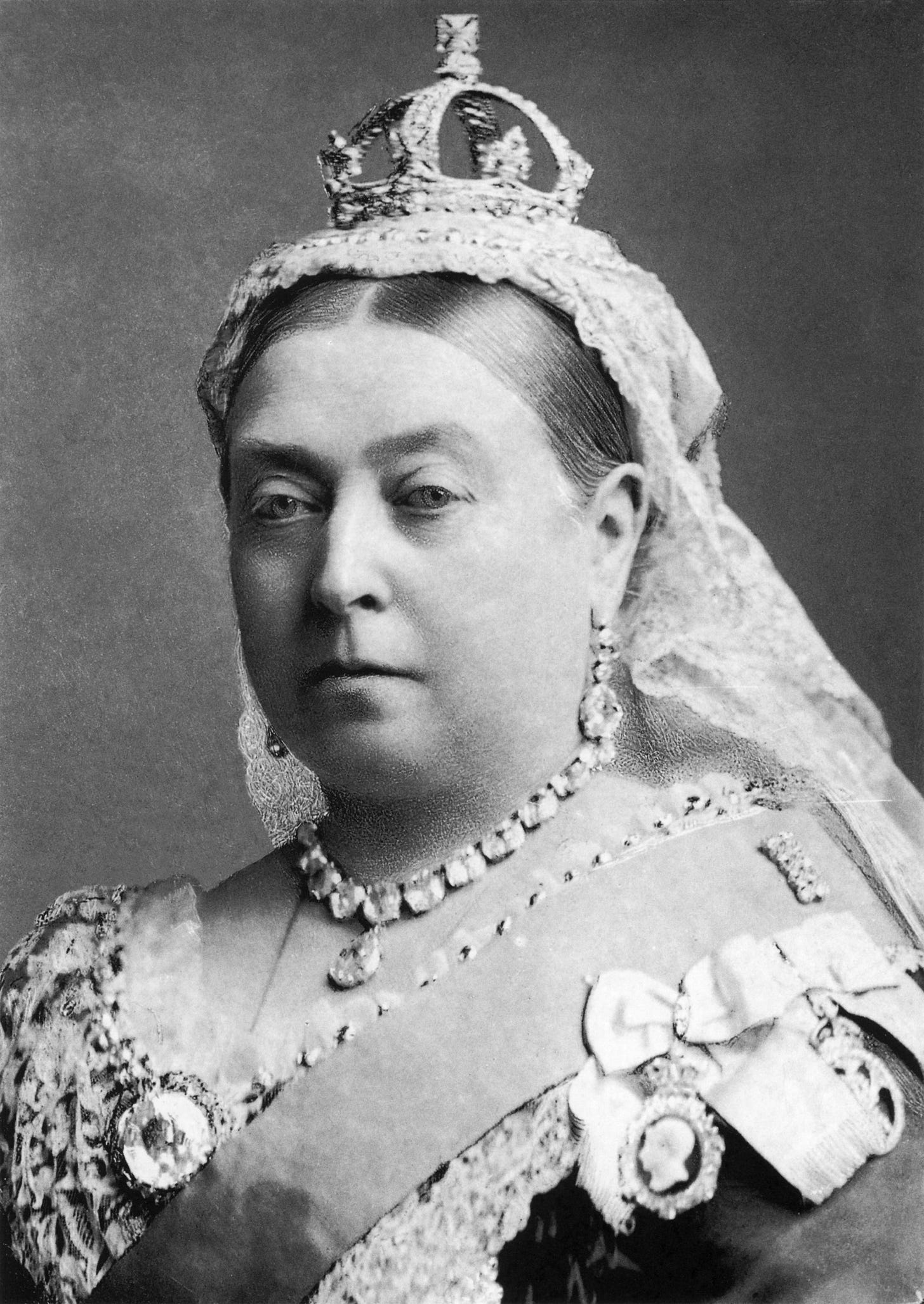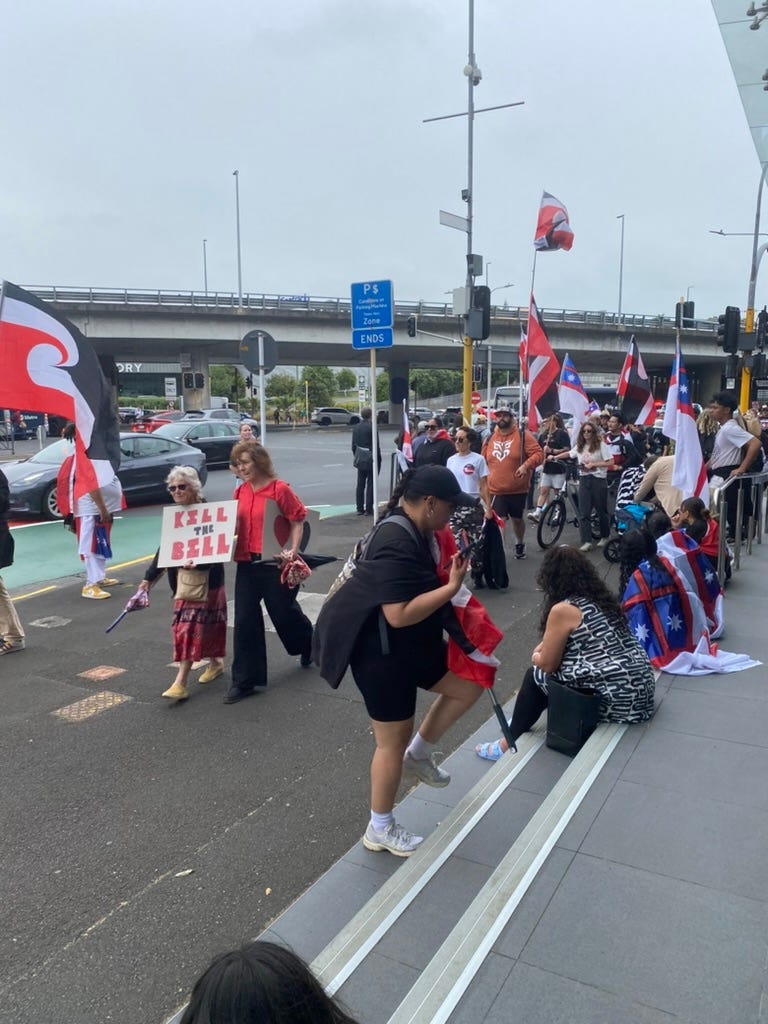"The Crown": What the heck is it anyway?
With the PM's apology for abuse in state care, it's been an emotional week.
Whenever the Treaty of Waitangi comes up there are normally references to “the Crown” – and that’s not the Netflix series. So, what is the Crown?
Crown is an abstract noun. It doesn’t refer to any person or thing. The law, including the Treaty of Waitangi Act 1975, uses the term quite a lot, however. For example, the Tribunal can inquire into claims arising from things done “by or on behalf of the Crown” that may have adversely affected an iwi or hapu.
The Cabinet Manual says that the meaning of “the Crown” depends on the context, but the word generally “describes executive government conducted by Ministers and their public service agencies.” (Para. 1.4.)
A longer explanation appears in Te Arawhiti’s guide to Treaty of Waitangi claims and negotiations with the Crown.
“The Crown stands for the historical authority of the sovereign (the Queen or King) as head of state”. For practical present-day purposes, that means the Governor-General representing the head of state, the prime minister and cabinet ministers (who are also MPs), and their departments. The departments are too numerous to name, but they include The Treasury, Te Arawhiti, The Department of Conservation, and so on.
That encompasses a heck of a lot people, even if we’re just talking about one Treaty settlement.
Te Arawhiti goes on, however, to say:
“Because of our democratic system it can also be said that ultimate authority or sovereignty in fact rests with voters. In this sense the Crown also symbolises the people of New Zealand.” (p. 17.)
You may now be wondering whose head the Crown does not adorn. The beauty is that it can symbolise an authority to govern that originated in one person and a democratic consent to govern that originates in all of the people. You need to access your inner poet to get that, but it neatly captures our unwritten constitution.
When a Treaty claim is recommended by the Tribunal to the Crown, it goes to the relevant ministers and public servants for negotiation and settlement. But a settlement bill has to be passed by parliament (the people’s representatives) to bring it into force and to authorise expenditure. A bill becomes an Act of Parliament once it’s received the Royal Assent. That means sign-off by the Governor-General who represents the King, and so it goes full circle.
Even in 1840, the Crown was quite a crowd in New Zealand. The Treaty was signed by Lieutenant-Governor Hobson on behalf of Queen Victoria, but Hobson had a supporting cast (Williams, Busby, Felton Mathew, etc.) while the Queen herself probably knew nothing about what was going on at the time. Even a Frenchman got involved: Bishop Pompallier extracted from the governor-to-be a verbal promise of religious freedom, often known as “the fourth article”.
There was lots of debate about the whole deal. In the end, well over 500 parties from around the motu signed the document. There are now hīkoi mō te Tiriti making their ways to parliament to protest about the Treaty Principles Bill, with messages for the Crown and for political parties. The Crown symbolises executive government, which acts on behalf of the people, but with a historical continuity that outlasts any particular government-of-the-day.
Queen Victoria wearing a crown in 1882.
A small part of the hikoi, having crossed Auckland Harbour Bridge, proceeding on to Fanshawe St.
In my previous post, the readers’ polls on the Treaty Principles Bill’s legislative progress and on its contents were polarised with no conclusive majority either way. Of course, such unscientific polls represent no population of interest, other than those who participated. They allow readers to register their opinions anonymously, however. And the results reveal the politically diverse readership of this newsletter.
Some on both sides of the present argument about the Treaty – as in polarised politics generally – express exasperation or disbelief that others don’t see things their own way. “If only they weren’t blinded by ideology or ignorance, they’d get it and they’d agree with me.” Hence some are inclined to abandon democratic ideals: a majority may just be wrong, or an annoying minority should be silent.
If we take seriously, however, the idea that the Treaty is a founding historical document that everyone should honour, it may mean that some honour it differently from others. Not everyone’s in line, that’s for sure. To progress beyond polarisation, some mutual understanding is called for.
Here’s my personal response to the prime minister’s formal apology in the House to the survivors of abuse in state care.
I’m unconcerned about the name or party affiliation of the prime minister who apologised, as it makes no difference in this case. I take it as an apology for wrongs that go back a long way, given on behalf of the Crown and the people.
I was moved by his saying sorry to those who were tortured at Lake Alice. When the report about horrific abuse of children and young people at that institution appeared almost two years ago, I went into an emotional tail-spin, as my late mother had been forcibly incarcerated there. She was not in the child and adolescent unit, so I don’t believe she was affected by the worst offences.
I’m grateful to two public servants who helped me to obtain my mum’s file. It contained copies of two letters I had written (by hand) to medical superintendent Pugmire, asking why she was there.
Thanks to the commission of inquiry, however, I now know more than I ever wanted to know. I know that Lake Alice was a house of horrors. Nonetheless, I saw no evidence of illegal conduct in my mother’s files. The recorded ECT was regular medical treatment, as far as I know.
It just made me sick that my mother had been confined in a place where people (to whom more than an apology is due) had been tortured or raped.
While in Porirua mental hospital in 1974, my mother had been diagnosed with paranoid schizophrenia. She was evidently unwell again in 1980 when she was taken involuntarily to Lake Alice by police, on the authority of two doctors and a magistrate. But the “care” there was inadequate, and she was malnourished.
Since suffering post-partum psychosis after I was born, she hadn’t received the kind of care she’d really needed. Instead, she eventually underwent (as I now see it) detention without trial in coercive institutions and medical procedures without consent. Everything that was dear to her was taken away from her. But the truth about her experience has gone with her to the grave, such was the quiet dignity with which she bore it. No commission of inquiry will ever hear her testimony. I believe she just didn’t want to talk about it to anyone anyway.
As she aged, she recovered. She spent the last years of her life properly cared for in a retirement village and died peacefully in 2021. She now has, I believe, the happiness for which she’d waited so patiently.
So thank you, prime minister, for that formal apology. Margaret Lorraine Duncan née Clift certainly deserved an apology.







Good description of the elements that are or may be The Crown.
Sad to hear your mother’s story. Thank you fie sharing it . I had an aunt who was ‘treated’ at a hellish NZ asylum. I know mental health services are seriously lacking today but what we had in our asylums was a disgrace.
Thanks for sharing this Grant. I too was really moved by the apology and know something of the experiences of the Porirua mental hospital (or 'asylum' as it was originally called) through my work in history/museums. The depth of the abuse that the report has uncovered will have enormous implications for how we make sense of who we are - or it should - and I really appreciate you sharing the experience of you mum. And, juxtaposing this with your discussion about the Crown/Treaty was a profound choice. Cat-among-the-pigeons here, but what strikes me about the anger/angst and extremism in the response to the Treaty Principles bill (which will never go beyond its first reading and is a largely manipulated, political stir up) says a lot about our priorities. Great for the extremists on both sides of the debate, but in my view this is largely a distraction and gets in the way of us talking about the deep-seated problems we face on our country - especially in regards to questions of inequality in health, education, housing, social policy etc. I look forward to a time, when as a nation we can feel the same sense of outrage about questions such as the Abuse in State Care (which is only the tip of the iceberg) as we are currently seeing over a Bill that will not go beyond its first reading.